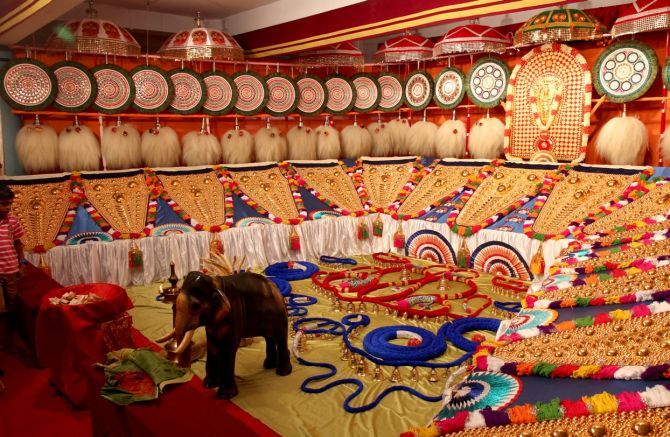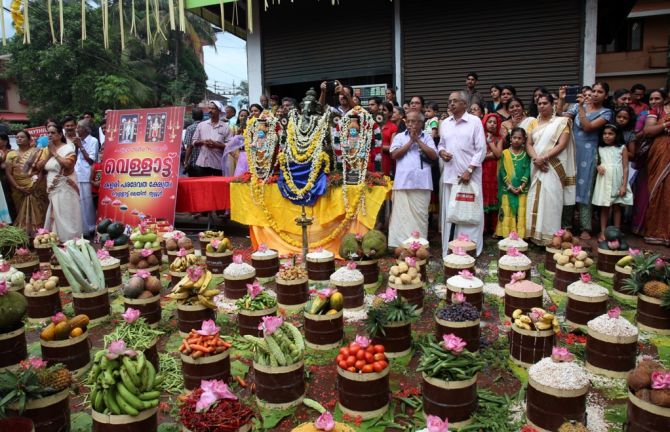Our focus should rather be on strengthening security measures to prevent Kollam-like tragedies, says Sanjeev Nayyar.

After the unfortunate incident at the Kollam temple on Sunday, in which 109 people lost their lives, the campaign to ban elephants and firecrackers in temples may get a fillip.
In 2014, I attended one of India’s most spectacular festivals, the Thrissur Pooram. This festival is all about elephants, their ornaments, percussion rhythm, parasol (umbrellas of different designs and colors), friendly contest between two temples and fireworks.
A couple of days before the festival started, I saw numerous elephants going through extensive medical check-up in the grounds of the Sree Vadukkunnathan Temple. The findings were dutifully recorded. Surprised, I casually asked one of the officers what was it all about. He said only the elephants which were certified to be medically fit could take part in the festival. Earlier in the day, I saw elephants being given a bath.
I was even more taken aback to see an exhibition of elephants' ornaments. Heard of ornaments for women, but elephants! A local told me that elephants were loved, revered and cared here, so what was wrong in making them wear ornaments.

Notable among the ornaments were Aalavattam, a special decorative circular shield or fan made of peacock feathers held atop the elephants; Venchamaram, white flowing tufts used to fan the Thidambu, decorated image of the deity, atop the elephants in ceremonial processions; and Nettipattam, golden colour face mask worn by the elephants.
On the day of Pooram, a procession of elephants is taken out and percussion artistes walk in the procession from Thiruvambady Bagavathy Temple, among others, to the Sree Vadukkunnathan Temple. All through the journey, I saw locals bowing to the elephants, taking their blessings and keeping lots of goodies for them to eat.
Hailing from North India, I was unable to relate to so much affection for elephants. As the festival progressed, I too started loving the elephants.
During the festival, I never saw elephants getting violent -- except when a tourist pinched an elephant to provoke response.

On the day after Pooram, I visited the Sree Bharatha Temple where percussion artistes were playing. There, I saw a van on which ‘Elephant Emergency and Critical Care Unit’ was written. Do we have such vans for human beings outside political rallies or rock concerts? It showed people’s concern for this loving creation of God.
I also saw elephants in many temples of Karnataka and Tamil Nadu. Everywhere, their blessings were sought by the devotees.
All this love for elephants reminded me of the movie Jungle Book, in which elephants are given maximum respect. Hope we do not overreact to the use of elephants in temple festivals, lest we should have to take a U-turn later when the West takes to elephants in a big way, just like Indians started giving importance to yoga only after it became popular in the West.

Fireworks take place in huge grounds of the Sree Vadukkunnathan Temple. During the fire display, the organisers make strict arrangements -- everyone has to stand at a good distance and they also monitor the event carefully.
However, there will be mishaps due to negligence, for which the guilty should be punished and preventive measures should be taken.
Indians did not stop flying after the 1990 A320 crash in Bangalore or the bombing of an Air India flight to Toronto in 1985 and travelling by train after numerous rail accidents.
Likewise, we should not take a decision to ban elephants in temple festivals in a haste. Rather, the security arrangements should be made stronger to prevent loss of lives.
Sanjeev Nayyar is founder of www.esamskriti.com and a columnist.










